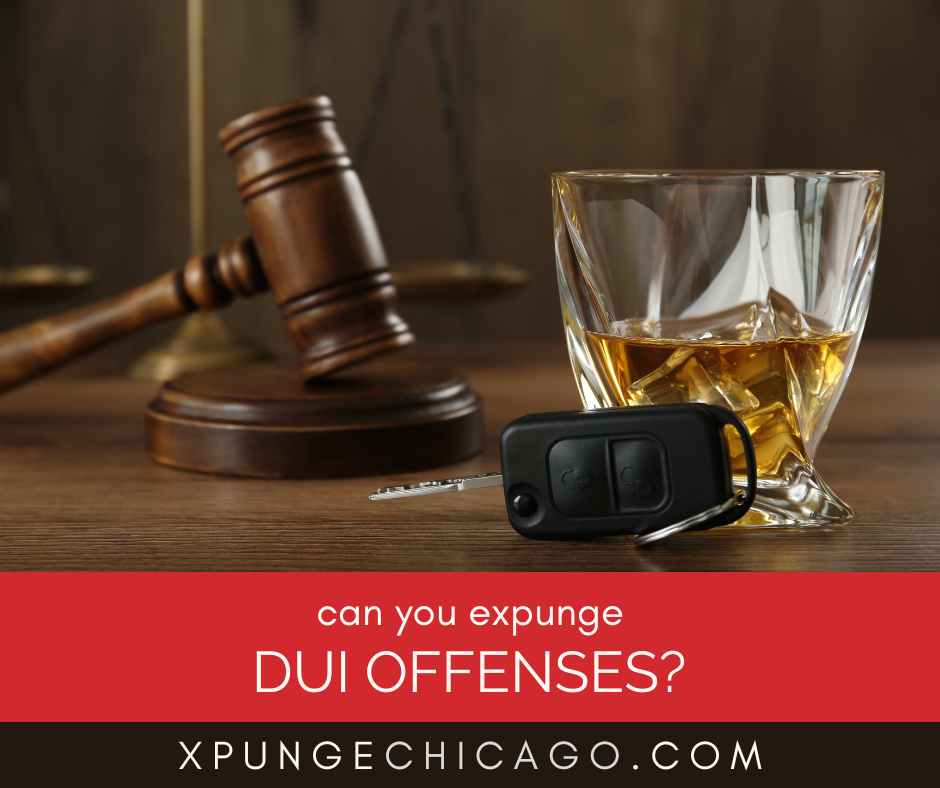
If you’ve been charged with or convicted of driving under the influence in Illinois, you may wonder if it’s possible to clear your record. DUIs can have long-term consequences on your employment, housing, and more, so understanding your options is essential. This guide explains whether you can expunge a DUI and how hiring an attorney can help.
Find out if you’re eligible for expungement here.
Can You Expunge DUI Offenses in Illinois?
Illinois has strict rules about expunging DUI offenses. While some charges may qualify, many do not. This guide explains the following:
- The difference between DUI arrests and convictions
- Expungement eligibility for DUI arrests
- Why DUI convictions usually cannot be expunged
- Other options if you can’t expunge a DUI
- How an attorney can help with DUI-related cases
Here’s a closer look at each.
The Difference Between DUI Arrests and Convictions
A DUI arrest means you were taken into custody on suspicion of driving under the influence, but it does not mean you were convicted. Convictions occur when a court finds you guilty. This distinction is critical because arrests and dropped charges may be expunged, while most convictions cannot.
Expungement Eligibility for DUI Arrests
You may be able to expunge a DUI arrest if your charges were dropped, you were found not guilty, or your conviction was vacated. An attorney can review your case and help you determine if you qualify.
Why DUI Convictions Usually Cannot Be Expunged
Under Illinois law, DUI convictions are not eligible for expungement. However, exceptions may apply in rare cases, such as if you successfully completed court-ordered supervision for certain DUI-related offenses. This is why it’s important to consult an attorney to explore your options.
Other Options if You Can’t Expunge a DUI
If you cannot expunge your DUI conviction, you may still qualify for record sealing. While sealing does not erase your record, it restricts access to it, making it invisible to most employers and landlords. An attorney can guide you through this process.
How an Attorney Can Help With DUI-Related Cases
An experienced attorney can assess your case, explain your options, and handle the paperwork and court filings for expungement or sealing. They can also represent you in court if needed, improving your chances of achieving the best possible outcome.
Find out if you’re eligible for expungement here.
FAQ About Expunging DUI Offenses in Illinois
Check out these commonly asked questions about expunging DUI offenses in Illinois. If you don’t see your question here, please call our office and we’ll find you the answers you need.
Can You Expunge a DUI Conviction in Illinois?
DUI convictions are not eligible for expungement under Illinois law, but an attorney can explore other options with you.
Can You Expunge a DUI Arrest?
Yes, if the charges were dropped, you were found not guilty, or your conviction was vacated, you may qualify to expunge the arrest.
What’s the Difference Between Expunging and Sealing a DUI Record?
Expungement destroys or returns the record to you, while sealing makes it invisible to most people but still accessible through fingerprint-based background checks.
How Long Does It Take to Expunge a DUI Arrest?
The timeline varies, but an attorney can help expedite the process by ensuring all paperwork is filed correctly and on time.
Can Supervision for a DUI Be Expunged?
DUI supervision generally cannot be expunged but may qualify for sealing. An attorney can review your case to determine what’s possible.
Clearing your record after a DUI can be complicated, but an experienced attorney can guide you through the process and ensure you take the best steps for your situation. Find out if you’re eligible for expungement here.
Do You Need to Talk to an Attorney About Expungement or Sealing?
If you’re tired of your criminal past coming back to bite you, we may be able to help. Call us right now at 847-920-4540 or fill out the form below so we can talk about your case.
Oops! We could not locate your form.















